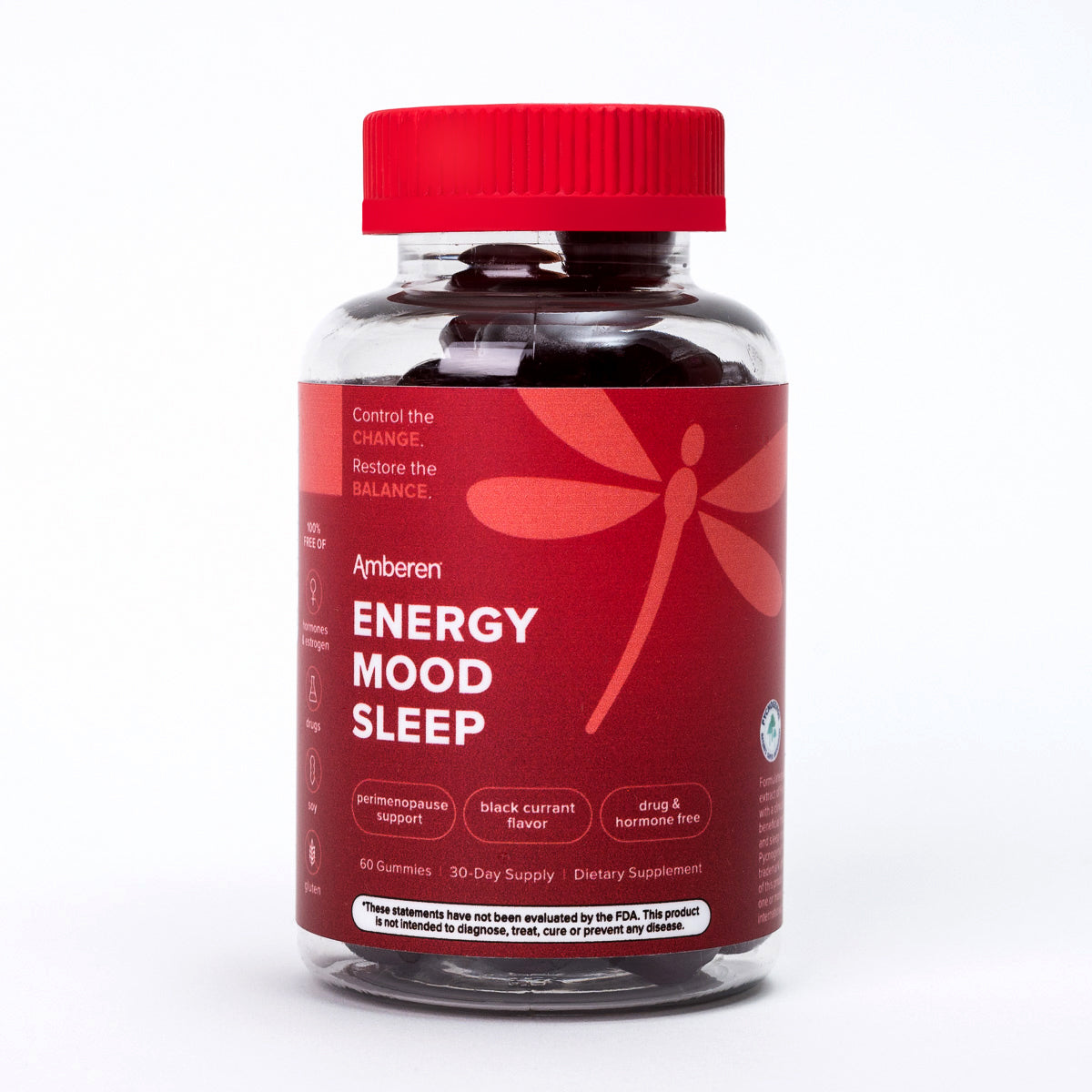
Menstrual irregularity in perimenopause & lifestyle choices that may help

Menstrual irregularity associated with perimenopause can be bothersome and challenging. There are things you can do that may positively impact your menstrual cycle and reduce bothersome perimenopause symptoms. But first, let’s take a look at what a regular menstrual cycle looks like and why menstrual irregularity due to perimenopause occurs in the first place. 1. https://www.mayoclinic.org/diseases-conditions/perimenopause/symptoms-causes/syc-20354666
The typical menstrual cycle occurs about once per month, and between 24 and 38 days is considered the normal range. The number of days between cycles can fluctuate a little bit, say, some months it’s 26 days and some it’s 28 days, but overall, a woman knows what to expect — when the bleeding is going to start and stop and the type of bleeding (heavy, light).
When a woman experiences changes in the duration of the cycle, such as significantly (more than usual slight fluctuation) longer or shorter intervals between bleeding as well as more or less bleeding days, her period is now termed irregular. The difference in flow (heavier or lighter) can also be part of this equation.
Menstrual irregularity in perimenopause
While a woman experiences regular hormonal changes throughout her life, hormonal ups and downs during perimenopause1 tend to be more than usual and nothing like she’s experienced before.
Perimenopause can begin as early as her mid-thirties, where estrogen levels can rise and fall in erratic patterns. Some of the physical symptoms may include fatigue, hot flashes, irritability and more. These physical symptoms can often be bothersome and can directly impact her emotional state. Some of the emotional symptoms may include mood changes, irritability, anxiety and stress.
When estrogen levels start to go haywire, along with physical and emotional symptoms, a perimenopausal woman will experience menstrual irregularity. This can include changes to her menstrual flow, shorter, longer cycles and skipped periods. In other words, a decline in estrogen can lead to fewer but longer cycles, and a higher-than-usual estrogen level might lead to shorter cycles.
According to the Mayo Clinic2, other common causes for menstrual irregularity not associated with perimenopause include polycystic ovary syndrome, pregnancy or breastfeeding, being underweight, pelvic inflammatory disease, uterine fibroids and premature ovarian failure. Likewise, being overweight and stressed may also lead to menstrual irregularity.
What may improve your menstrual cycle during perimenopause?
If you’re in perimenopause and experiencing menstrual irregularity, there are lifestyle choices that may improve your menstrual cycle.
• Reduce stress: A study3 on perimenopausal women showed a correlation between varying levels of stress (stressful life events) and menstrual cycle regularity. Stress, in general, may impact our body, including menstrual cycle (or regularity). Try practicing stress-reducing activities such as getting proper sleep, reading a book, meditating and yoga. Reducing stress may help reduce the severity of perimenopause symptoms.
• Maintain healthy weight: Being underweight or overweight can disrupt your menstrual cycle. In a study4 on women transitioning towards menopause, which included perimenopausal women, obesity impacted their menstrual cycle. In fact, obesity causes irregularity in that cycles tend to be longer in women experiencing perimenopause and through menopausal stages. Maintaining a healthy BMI can improve your overall health and stamina and reduce overall perimenopause symptoms. Regular exercise and eating right may potentially help mitigate perimenopausal symptoms.
• Discover Amberen: In addition to reducing stress, and maintaining a healthy weight, try AMBEREN PERIMENOPAUSE RELIEF CAPSULES. This supplement has been clinically tested on perimenopausal women and contains no drugs, herbs or hormones. Instead, its unique formula contains antioxidants, amino acids, minerals, vitamin E and Amberen Perimenopause’s powerful Smart B® Complex. It helps relieve 10 perimenopause symptoms such as fatigue, irritability, sleeplessness, anxiety and stress, hot flashes, night sweats, muscle and joint aches, headaches, mood swings and low sex drive.* Plus, 74% of perimenopausal women who participated in the clinical trial experienced menstrual regularity.^†
• See your doctor: If you are concerned about your menstrual irregularity, which is associated with perimenopause, and other symptoms, see your doctor. Your doctor can help produce a medical plan that may improve perimenopause symptoms, including how to improve menstrual irregularity.
Final thoughts
Healthy lifestyle choices, such as finding activities that help reduce stress, like meditating or reading a book, can be helpful for overall wellness. Likewise, a daily regimen of regular exercise, eating healthy, getting proper sleep and taking Amberen Perimenopause are also great ways to help manage perimenopause symptoms. However, there are no guarantees that these lifestyle choices and suggestions will regulate your menstrual cycle. Every woman’s body is different, and yet having unpredictable, irregular periods due to perimenopause can often be frustrating.
If you’re still concerned about your irregular menstrual cycle, remember not to be afraid to reach out for professional help. Schedule an appointment with your gynecologist to discuss a medical plan that may also improve menstrual irregularity. While you’re at it, schedule a well-woman exam, too. Discuss all your perimenopause symptoms with your doctor if you have any additional concerns. Keeping up with your menstrual health and overall wellness are vital components of self-care. Self-care can make a difference in how you experience perimenopause.
For more perimenopause support
If you’re still wondering about our product and have questions about your perimenopause symptoms, call Menopause Specialists at (800) 211-8021 Monday – Friday 9 a.m. – 7 p.m. EST. Menopause Specialists is free for Amberen Perimenopause customers. It’s a team of perimenopause professionals led by a licensed Menopause Specialist.††
2. https://www.mayoclinic.org/healthy-lifestyle/womens-health/in-depth/menstrual-cycle/art-20047186
3. https://www.ncbi.nlm.nih.gov/pubmed/15589774
4. https://www.ncbi.nlm.nih.gov/pmc/articles/PMC5041043/
This blog post and the recommendations made herein are provided for informational purposes only and are not intended to be used as healthcare advice. Individuals are encouraged to consult their healthcare provider with questions about their specific needs. The references provided in this blog post are identified for informational purposes only and such references and the underlying research, including the entities and individuals involved in the underlying research, did not involve Amberen and are not affiliated with Amberen or the makers of Amberen.
Right symptoms. Right phase. Right relief.
Find the Amberen product that’s best suited for your specific symptoms.
- Regular Price
- $29.99
- Sale Price
- Starting at $29.99
- Regular Price
-
- Unit Price
- per
- Regular Price
- $29.99
- Sale Price
- Starting at $29.99
- Regular Price
-
- Unit Price
- per
- Regular Price
- $32.99
- Sale Price
- Starting at $32.99
- Regular Price
-
- Unit Price
- per
- Unit Price
- per



